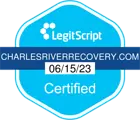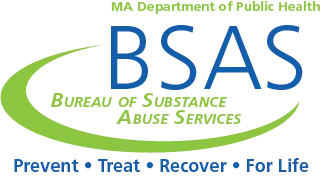The Road to Recovery: Understanding Drug Detox and Alcohol Rehab Programs
Are you suffering from drug addiction, and do you require some assistance? If so, you should consider rehabilitation and detoxification. It is important to understand that there is a distinction between detoxification and rehabilitation. Detoxification is usually the first step during the recovery journey of a drug addict. It entails the removal of different substances from your body in a supervised and controlled environment.
During detoxification, you may experience withdrawal symptoms, and they may vary in terms of intensity and nature depending on the dosage, substance, individual health factors, and duration of use. The main goal of detoxification is medical stabilization to ensure that the physical well-being and safety of the client are safeguarded as the alcohol and drugs are being excreted and metabolized from the body.
Rehabilitation, on the other hand, goes further, and it helps address the emotional and psychological components of drug and alcohol addiction. It is a program that supports people who are trying to adjust to a life without substances while addressing the main cause of addiction and teaching them new coping mechanisms. Rehabilitation normally takes place in a specialized facility offering different types of therapeutic interventions.
The Importance of Seeking Professional Help for Drug Detoxification
The main goal of drug detoxification is to help with the management of withdrawal symptoms when a person stops using alcohol or drugs. The detoxification symptoms can vary and range from mild to severe. The symptoms can be psychological and physical, and they can include headaches, anxiety, tremors, and depression.
How Long Does Detoxification Take?
The duration of detoxification can vary depending on the severity of drug abuse. It may last from a few days to several weeks. The choice between medication-assisted treatment or drug-free methods also plays a role. Detoxification marks the initial step toward overcoming alcohol and drug addiction, with the ultimate objective being to help individuals attain a healthier, drug-free future.
Is Drug Detoxification Necessary?
Medical supervision is highly recommended during detoxification to ensure the safety and well-being of individuals undergoing the process. While it is true that seeking assistance from a detoxification center can be beneficial for addicts, it is crucial to highlight the potential risks involved in detoxification, especially for those who have been engaging in alcohol and drug abuse for an extended period.
Addiction is a complex issue that can have profound effects on an individual, both physically and mentally. By seeking professional help and taking steps toward recovery, individuals can begin their journey toward sobriety and a more meaningful life.
Is Drug Detoxification Painful?
Detoxification isn’t easy. The symptoms also vary from one person to another, and they may include sickness, headaches, trouble sleeping, anxiety, and tremors. The symptoms will vary from one person to another in terms of type and severity.
Nevertheless, you don’t need to undergo detoxification alone. Medicine and medical detox make things easier. The right treatment provider will connect you with the appropriate treatment services. The doctors can then prescribe medicine and also monitor your reaction to ensure that you’re comfortable and safe during the entire process. Some of the medication can ensure that the withdrawal symptoms won’t be as severe.
Signs That Indicate That an Individual Requires Drug Detox
Drug detox is a crucial step in the journey towards recovery. Some individuals may feel apprehensive about entering a detox program, but it is essential to recognize the signs that indicate the need for detox so that you can pursue a happier and healthier life. If you are experiencing any of the following symptoms, it may be time to consider undergoing drug detoxification:
- Intense or constant cravings for alcohol or drugs
- Difficulty in reducing or stopping drug use
- Withdrawal symptoms when you fail to use drugs
- Erratic or dangerous behavior
- Strained relationships with the people around you because of substance use
- Persistent mental health issues
- Spending time looking into how you can acquire the substances and consume them
- Issues at school or work
While not everyone will display all of these signs, being aware of them can help you determine if drug detoxification is necessary for you.
Why Drug Detoxification Is Important
The process of recovering from drug addiction isn’t easy; however, some people can offer you the assistance and support that you need. A good detoxification program acts as a safe place where people can wait as the drugs exit their bodies. Such a program will ensure you have a connection or access to different therapeutic interventions. Some of these interventions include support groups, counseling, aftercare services, and medication-assisted treatment (MAT).
Exploring Different Approaches to Drug and Alcohol Rehabilitation
Addiction is a widespread and multifaceted problem that impacts a significant portion of the global population. Fortunately, there are various treatment methods available to provide the necessary support for individuals struggling with addiction as they work toward recovery.
Behavioral Therapy
Behavioral therapy plays a key role when it comes to addiction recovery. It helps individuals identify and change some of their thought patterns and unhealthy behaviors that have contributed to their addiction. Several behavioral therapies have proven to be effective in treating addiction.
Contingency Management (CM)
Contingency management entails offering tangible incentives or rewards for meeting treatment goals and achieving abstinence. This approach helps to reinforce positive behaviors, and it can be effective when it comes to addiction.
Motivational Interviewing (MI)
Motivational interviewing is an approach that is client-centered. It explores the intrinsic motivation for a person to change and makes it possible for people to resolve their uncertainty when it comes to building commitment toward sobriety and recovery.
Cognitive Behavioral Therapy (CBT)
Cognitive-behavioral therapy ensures that individuals modify and recognize negative behaviors and thought patterns. It equips them with coping strategies to handle stressors and triggers.
12-Step Programs
There are different 12-step programs available, but the most well-known are Narcotics Anonymous (NA) and Alcoholics Anonymous (AA). These programs have played a key role when it comes to assisting individuals in leading and maintaining sobriety.
When you’re a part of these programs, you’ll have access to a supportive community of peers who understand the challenges that are brought about by addiction. The 12 steps outline a behavioral and spiritual framework for recovery, emphasizing making amends, assisting others, and also self-reflection. When you participate in a 12-step program, you’ll have access to ongoing support and accountability. Many people find solace in the spiritual and fellowship component of these programs.
Dual-Diagnosis Treatment
Many individuals struggle with addiction and mental health disorders at the same time. Some of these mental health disorders include bipolar disorder, anxiety, or depression. Dual-diagnosis treatment integrates addiction treatment and mental health care, which means both conditions are addressed simultaneously. Effective treatment takes into consideration the interconnectedness of mental health and addiction, thus providing a comprehensive approach to recovery.
Medication-Assisted Treatment (MAT)
Medication-assisted treatment is an effective approach for rehabilitation, particularly for alcohol use and opioid disorders. It involves combining FDA-approved medications with therapy and counseling to support individuals in managing withdrawal symptoms and cravings. Medications such as buprenorphine, methadone, and naltrexone are utilized to aid in the treatment process.
By alleviating withdrawal symptoms and cravings, clients are better able to concentrate on their recovery without the struggle of physical dependence. It is essential to understand that MAT is not a one-size-fits-all solution; the choice of medication depends on an individual’s specific needs and the nature of their addiction. MAT has demonstrated positive outcomes in improving treatment retention rates and reducing illicit drug use, making it a valuable tool in addressing addiction.
Inpatient and Outpatient Treatment Programs
Inpatient and outpatient treatment programs cater to individuals with varying needs and levels of addiction severity. The decision between these two types of programs typically hinges on individual circumstances and the specific requirements of the person seeking treatment.
Inpatient Treatment
In an inpatient rehab program, clients are monitored 24/7, and they have access to the support they need in a structured environment. Such a program is ideal for people whose addiction is severe and who face the risk of relapsing. Inpatient programs ensure clients have access to intensive therapy, a break from temptations and triggers, and medical care.
Outpatient Treatment
Outpatient programs enable individuals to receive treatment while staying at home. These programs offer flexibility and are suitable for individuals whose addiction isn’t severe. An outpatient program can include group therapy, medication management, and individual counseling.
Holistic and Alternative Therapies
For people to successfully recover, they may have to take part in alternative therapies since these therapies can help address the emotional, physical, and spiritual aspects that are associated with addiction. There are several alternative therapies available to those in recovery.
Music and Art Therapy
Creative expression is a powerful tool when it comes to healing. Music and art therapy offer a non-verbal outlet whereby people can express their emotions while facilitating healing and self-discovery.
Meditation and Yoga
Mindfulness practices, such as meditation and yoga, can help an individual reduce stress, enhance self-awareness, and reduce cravings. They assist in promoting emotional well-being and relaxation.
Massage and Acupuncture
These forms of therapy can help in dealing with the physical discomfort experienced during recovery and withdrawal. They can also help reduce anxiety.
Finding the Right Drug Detox and Alcohol Rehab Facility for Your Needs
If you’ve never checked into a drug detoxification and alcohol rehabilitation facility before, the following tips will guide you on how to find the right one.
Determine Your Goals
Each drug detoxification and alcohol rehabilitation center offers distinctive specialties and develops its own treatment programs and methods. However, the initial step in the treatment process is establishing your rehabilitation goals based on your individual needs. To begin, it’s important to pinpoint the specific substance involved and assess your behaviors related to its use. Additionally, identifying any underlying issues or coexisting medical conditions that may necessitate simultaneous treatment is crucial. By defining your goals and needs clearly, you can then begin a more tailored and effective treatment plan.
Meet With a Treatment Provider
One effective way to determine the best treatment option for you is to consult with treatment providers. They can provide valuable information about the various treatment options available and help match you with the most suitable one. Treatment providers are knowledgeable about the specialties of different drug and alcohol rehabilitation centers, enabling them to guide you toward the most appropriate choice.
Engaging with caregivers can also be beneficial, as they can offer insights and support when discussing treatment options for someone dealing with drug and substance abuse. By involving caregivers in the conversation, you can ensure a comprehensive understanding of the available treatment resources and make informed decisions together.
Look for Accredited and Licensed Centers
When searching for a drug and alcohol rehabilitation center, it’s important to verify that the facilities you are considering adhere to specific government standards and hold the proper licensing. Choosing a licensed and accredited facility guarantees authenticity and ensures that the facility has a team of knowledgeable and skilled staff who follow guidelines for delivering individualized treatment.
Achieve Long-Term Sobriety With Professional Detox and Rehab
If you or someone you love is dealing with addiction to drugs or alcohol, it is never too late to seek help.
With the right support and treatment, long-term recovery is possible. Treatment facilities like Charles River Recovery offer a full range of programs, from drug and alcohol detox to personalized treatment. Our goal is to build the foundation you need to get away from drugs and alcohol and connect you with the resources you need to live a healthy life free from addiction.
While recovery is challenging, you don’t have to go through it alone. The first step begins with reaching out for help and getting the support you need.






